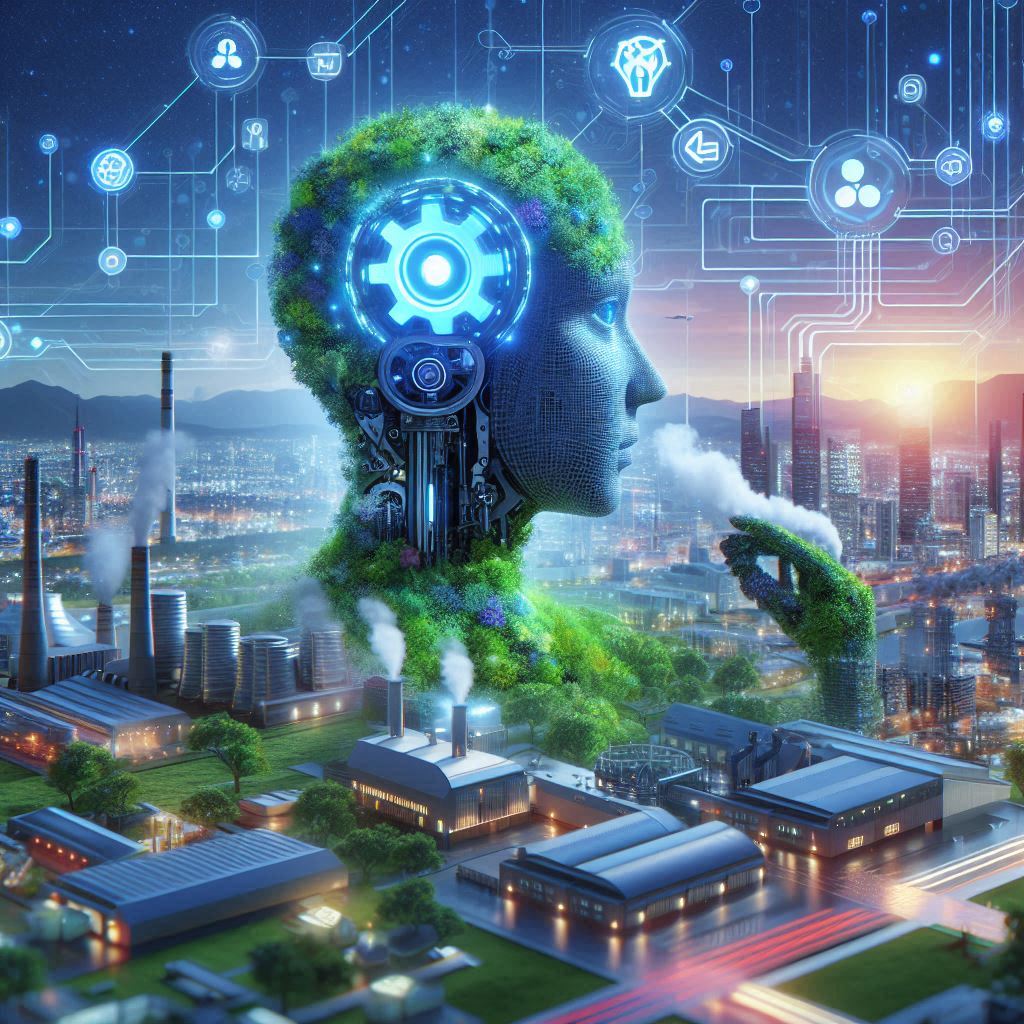AI-Powered Sustainability: Transforming Industrial Manufacturing
Introduction
In the era of rapid industrialization and technological advancements, Artificial Intelligence (AI) is proving to be a key driver of sustainability in industrial manufacturing. By optimizing energy usage, reducing waste, and enhancing efficiency, AI is revolutionizing industries and paving the way for a greener, more sustainable future. This blog explores the transformative role of AI in sustainable industrial manufacturing and the cutting-edge innovations shaping the sector.
The Role of AI in Sustainable Manufacturing
AI is being integrated into industrial processes to address key sustainability challenges. From predictive maintenance to energy-efficient production planning, AI-powered solutions are reducing environmental footprints while improving overall productivity. Key areas where AI is making a difference include:
1. Energy Optimization and Efficiency
- AI-driven energy management systems analyze real-time data to minimize energy consumption.
- Smart grids and automation help industries optimize electricity usage, reducing reliance on fossil fuels.
- AI-powered demand forecasting enables manufacturers to adjust energy consumption based on production needs.
2. Waste Reduction and Circular Economy
- AI-powered waste monitoring systems track resource utilization, identifying areas for reduction and reuse.
- Machine learning algorithms optimize material usage, reducing industrial waste.
- AI facilitates circular economy strategies, ensuring that materials are efficiently recycled and repurposed.
3. Predictive Maintenance and Equipment Longevity
- AI detects early signs of machine failure, preventing costly breakdowns and reducing resource wastage.
- IoT sensors combined with AI analytics predict equipment health, extending machine life and reducing unnecessary replacements.
- Automated maintenance schedules reduce downtime and optimize production efficiency.
4. AI-Driven Supply Chain Sustainability
- AI enhances supply chain transparency, reducing emissions through optimized logistics.
- Smart routing and fleet management lower fuel consumption and carbon footprints.
- AI-powered blockchain solutions improve traceability and ensure ethical sourcing of materials.
Case Studies: AI in Action
1. AI in Smart Factories
Major companies like Siemens and General Electric have integrated AI into their manufacturing plants, using digital twins to simulate and optimize production processes, reducing energy waste.
2. AI in Carbon Footprint Reduction
Tech giants like Google and Microsoft leverage AI to reduce energy consumption in data centers, lowering their carbon footprint while maintaining operational efficiency.
3. AI for Sustainable Material Innovation
AI-driven research has led to the development of eco-friendly materials, such as bio-based plastics and low-carbon concrete, revolutionizing industrial manufacturing.
Challenges and Future Prospects
Despite its potential, AI adoption in sustainability faces hurdles such as high implementation costs, data security concerns, and the need for skilled personnel. However, continuous advancements and increasing awareness of sustainability goals are accelerating AI-driven transformations.
Conclusion
AI is reshaping industrial manufacturing by integrating sustainability into core operations. From energy efficiency to waste reduction and predictive maintenance, AI-powered solutions are setting new standards for eco-friendly industrial processes. As industries continue to embrace AI, the path to a carbon-neutral, resource-efficient future becomes increasingly achievable.
